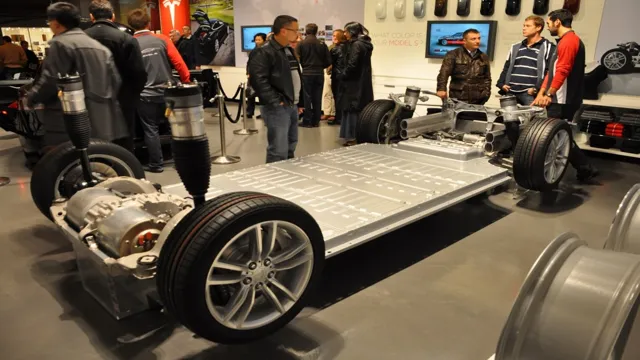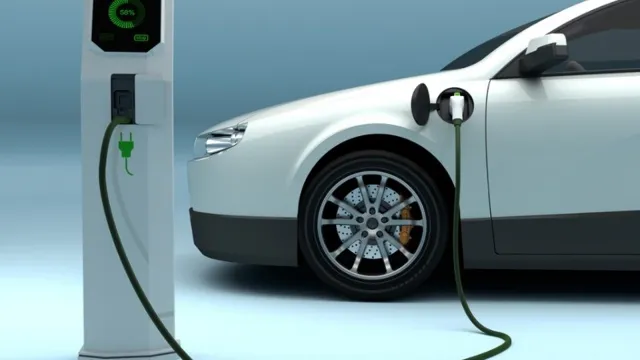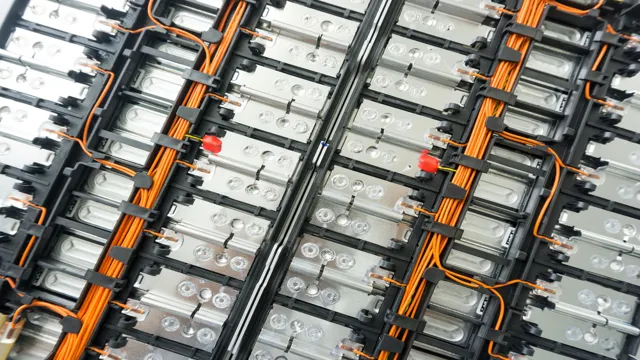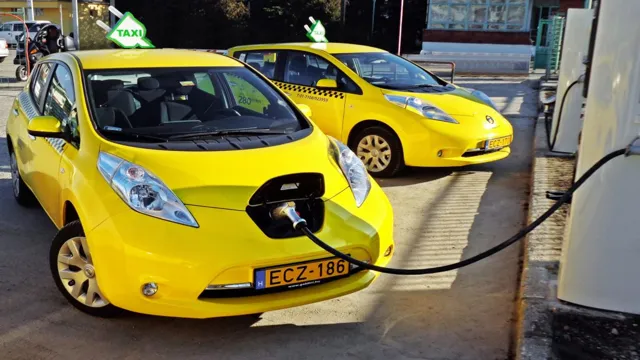Decoding the Cost of Tesla Electric Car Batteries: Is Going Green Worth the Investment?
You may have heard a lot of buzz surrounding the cost of Tesla batteries, especially as electric vehicles continue to gain traction in the automotive industry. But what exactly is the cost of Tesla batteries? And what factors can affect the overall price? First, it’s important to note that the cost can vary depending on the size and type of battery needed for a specific Tesla model. However, on average, the cost of a Tesla battery can range from $5,000 to $20,000.
One of the main factors impacting the cost of a Tesla battery is the production process. The manufacturing of electric vehicle batteries involves a lot of complex steps and special materials, which can drive up production costs. Additionally, the demand for these batteries has increased in recent years, which has also played a role in the overall cost.
Despite this, many consumers still find the cost of a Tesla battery worth the investment, as it ultimately leads to lower fuel costs and a reduction in carbon emissions. Plus, as technology continues to improve and become more efficient, it’s likely that the cost of Tesla batteries will continue to decrease over time. So, while the initial cost may seem daunting, it’s important to consider the long-term benefits and environmental impact of investing in a Tesla battery.
Overview
The cost of a battery for a Tesla electric car can vary significantly depending on the model and the size of the battery. The most commonly used battery in Tesla cars is the lithium-ion battery, which can last for hundreds of miles on a single charge. The cost of this battery can range from $7,500 to $29,000, depending on the model of the car and the size of the battery needed.
These prices may seem steep, but it’s important to keep in mind that the battery is the heart of a Tesla electric car and is what keeps it running. Additionally, Tesla has made significant strides in battery technology in recent years, making their batteries more efficient and cost-effective. So while the cost of a Tesla battery may seem high, it’s worth the investment for those who want to own a reliable and environmentally-friendly electric car.
Introduction to Tesla Batteries
If you’re interested in the world of electric vehicles, you’ve undoubtedly heard of Tesla. And if you’ve heard of Tesla, you’ve probably also heard about their batteries. Tesla batteries are used to power their impressive lineup of electric cars, but did you know they’re also used to store energy in homes and businesses? These batteries are designed to be long-lasting, with a lifespan of about 15 years.
They’re also incredibly efficient, with a high energy density that allows them to store a lot of power in a small space. This makes them ideal for use in electric vehicles and for storing solar energy for use when the sun isn’t shining. Overall, Tesla batteries represent a significant advancement in energy storage technology that’s helping to pave the way for a more sustainable future.
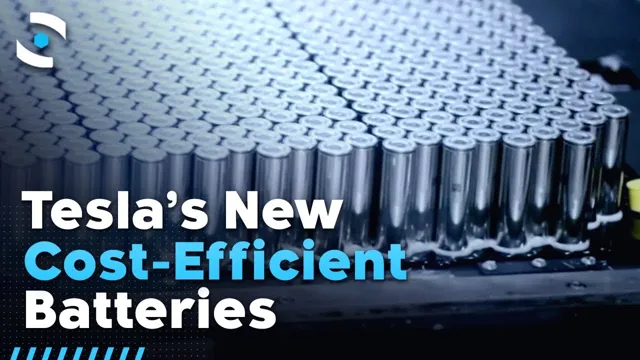
Factors Affecting Tesla Battery Cost
Tesla battery cost is one of the most discussed topics in the electric vehicle industry. The factors affecting the cost of Tesla batteries are diverse and complex. In order to keep the cost of production low, Tesla uses a wide range of materials such as nickel, cobalt, lithium, and aluminum.
The prices of these materials are subject to fluctuations in the global market, which has a direct impact on the cost of battery production. Another important factor affecting battery production costs is the size of the battery pack. The larger the battery pack, the higher the cost of production.
Tesla also invests in research and development to improve battery technology, which can reduce the cost of battery production over time. In addition, Tesla has economies of scale that enable them to reduce costs and improve efficiency in production. As the demand for electric vehicles continues to grow, Tesla is expected to continue to innovate and drive down battery production costs.
Current Costs
The cost of a battery for a Tesla electric car varies depending on the specific model and the size of the battery. A standard Model 3 has a battery capacity of 50 kWh which costs around $7,500 to replace. Meanwhile, a long-range Model S with a 100 kWh battery can cost as much as $18,000 to replace.
The cost of the battery may seem high, but it’s important to consider the long-term savings on fuel and maintenance that come with driving an electric vehicle. Additionally, as electric car technology improves, the cost of batteries is expected to come down over time which will make owning an electric vehicle even more affordable for drivers. At the moment, it’s clear that owning an electric vehicle comes with an upfront expense, but the benefits in the long run significantly outweigh the costs.
Prices for Model S, X, 3, and Y Batteries
Tesla’s Model S, X, 3, and Y have varying battery sizes, which affect their prices. As of now, the costs for these batteries range from around $7,000 to $22,000, depending on the size and model of the vehicle. The smaller the battery, the lower the price, and vice versa.
For instance, the Model S and Model X batteries cost more than the Model 3 and Model Y batteries because they have larger battery capacities. Additionally, batteries with longer ranges also cost more. This pricing structure reflects the high cost of producing and developing electric vehicle batteries compared to traditional gasoline engines.
Tesla’s pricing model makes electric vehicles more accessible to the general public, and as it continues to produce innovative solutions, we can expect the costs of batteries to decrease in the future, making electric cars more affordable.
Long-Term Savings of Electric Cars
Electric cars are known for being a more sustainable option compared to traditional gas-powered vehicles, but what about the costs? Currently, electric cars come with a higher price tag than their gas counterparts. Although the initial cost may seem daunting, it’s essential to take into account the long-term savings that come with owning an electric car. They require less maintenance, as they have fewer moving parts and don’t require oil changes.
Additionally, electric cars cost significantly less to “refuel” at charging stations compared to the ever-changing gas prices at the pump. So, while you may spend more upfront to purchase an electric car, the long-term savings on maintenance and fuel costs can make it a worthwhile investment for both your wallet and the environment.
Future Outlook
The cost of batteries for Tesla electric car is a hot topic among car enthusiasts and environmentalists alike. It is common knowledge that the battery of an electric vehicle is the most expensive component, accounting for almost one-third of the total cost of the car. Historically, this has made electric vehicles less accessible to most people.
However, with advancements in technology and manufacturing processes, the cost of batteries is projected to decrease significantly in the coming years. In fact, Tesla’s CEO, Elon Musk, has stated that the cost of batteries will decrease by 50% in the next three years. Such a reduction in cost will make electric vehicles more affordable than ever before, thereby increasing their adoption rates.
Many industry experts also predict that as electric vehicle adoption rates increase, mass production will further drive down battery costs, making it possible for electric vehicles to compete on price with conventional gasoline-powered vehicles within the next decade. With the cost of batteries going down, it is clear that the future outlook for electric vehicles is bright.
Predictions for Tesla Battery Costs
As Tesla continues to innovate and develop new battery technologies, the future outlook for battery costs looks promising. Many experts predict that within the next few years, Tesla may be able to reduce the cost of their batteries to a point where they are much more affordable for the average consumer. This would be a huge milestone for the company and could pave the way for even more widespread adoption of electric vehicles.
Some analysts even predict that we may see a “tipping point” in the near future, where the cost of electric vehicles is on par with or even cheaper than traditional gas-powered cars. This would create a huge shift in the automotive industry and could help to significantly reduce greenhouse gas emissions. Overall, while there is still much uncertainty surrounding the specific timeline and cost reduction potential, it’s clear that Tesla is committed to finding a solution and making electric vehicles accessible for everyone.
Advancements and Improvements
Looking at the advancements and improvements in technology, it’s clear that the future is bright. We can expect to see more groundbreaking innovations and solutions that will revolutionize the way we live, work and interact with each other. One area that is showing a lot of promise is AI.
AI has come a long way, and we are starting to see its impact in various aspects of our lives, from chatbots to self-driving cars. The potential of AI is limitless, and as we continue to advance the technology, we can expect to see even better solutions that are more accurate, efficient and secure. Another area that holds a lot of promise is renewable energy.
With concerns over climate change increasing, the need for sustainable solutions is more pressing than ever before. With advancements in solar power, wind turbines, and electric cars, we are making great strides in reducing our carbon footprint and ensuring a cleaner, greener future. Overall, the future outlook is positive, and we can expect to see a lot more exciting developments in the years to come.
Conclusion
In the world of electric cars, the cost of a battery is a crucial factor in determining the overall cost and viability of the vehicle. For Tesla owners, the cost of a replacement battery can be significant, but the benefits of driving a sleek and sustainable electric car are worth it. After all, with a Tesla, you’re not just paying for a battery – you’re investing in a cleaner, smarter future.
So whether you’re crunching the numbers or just enjoying the ride, remember that the cost of a battery is just one piece of the puzzle when it comes to choosing an electric car.”
FAQs
What is the cost of a Tesla electric car battery?
The cost of a Tesla electric car battery varies depending on the model, but it can range from around $5,500 to $20,000.
How long does a Tesla electric car battery last?
Tesla electric car batteries are designed to last for hundreds of thousands of miles, with the company offering an 8-year warranty on the battery and drivetrain.
Can you replace a Tesla electric car battery?
Yes, it is possible to replace a Tesla electric car battery if it becomes damaged or begins to deteriorate. However, it can be an expensive process and is usually only recommended if the car is still under warranty.
How does the cost of a Tesla electric car battery compare to other EVs?
The cost of a Tesla electric car battery is generally higher than other EVs on the market, but this is due to the company’s focus on high-performance and long-range capabilities. However, with advancements in battery technology, prices are expected to come down in the future.

